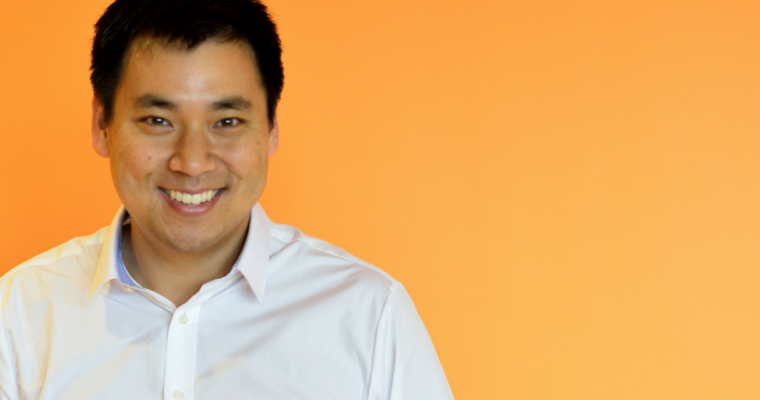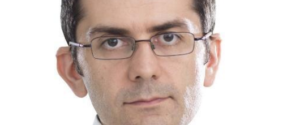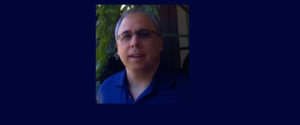



Larry Kim is the founder of WordStream, a leading search marketing software and services provider based in Boston, managing approximately a half-Billion in annual ad spend across over ten thousand customers. He regularly shares his advice and insight with over a million visitors a month at his WordStream Blog and is a top contributor for leading industry publications including Inc. Magazine, Social Media Examiner, Search Engine Land and Social Media Today.
Larry has spoken at or keynoted numerous industry events including INBOUND, SearchLove, SMX, Pubcon, PPC Hero Conference, ClickZ, Marketing Festival, SEMPDX and many others. He was recently named “Most Influential PPC Expert” for 2015, 2014 and 2013 by PPC Hero Blog, and won Top Search Marketing Awards for 2015 from the US Search Awards and Search Engine Land.
Larry recently founded a Chatbot Building Platform called MobileMonkey ( Update: 2017 ). In this interview he talks about his company Wordstream and the startup journey, small business marketing, Google’s rank brain and more. Read on.
Kavin Paulson: Hi Larry, thank you so much for your time, we are honored to have you featured in The iMarketing Café. Can you tell us something that we do not know about you?
Larry Kim: Sure. Couple of random facts… I’m:
• I’m an expert drone pilot.
• Totally addicted to Boom Beach (a mobile video game)
• Have a 1-year old kid (#ppckid)
• Studied French for over 12 years in Canada.
• Have perfect pitch.
• Was in the army for a year.
Kavin Paulson: Tell us more about Wordstream.
Larry Kim: I started the business 7 years ago. Originally I was doing internet marketing consulting on my own as a sole-proprietor. Later I wrote some software to make my life easier. Then I got the idea that maybe the software could be a business. I pitched a bunch of venture capital investment firms and somehow managed to raise a few million dollars. Today the company employs over 150 people and manages a half billion in ad spend for over ten thousand customers. It’s pretty cool stuff!
KP: Wordstream has grown from a bootstrapped startup into a $100+ million valuation. How has the startup journey been?
LK: Totally not what I expected.
KP: What were the major challenges did you face during the early days? Can you share some tips with budding entrepreneurs on how to overcome the typical start-up challenges?
LK: I’ve made too many mistakes to list out here. Here are a few of the top themes:
1. Underestimating the importance of having a Great UX
2. How critical it is to have a “Must Have” vs. “Nice to Have” product (see Google’s Toothbrush Test) and just how much of a difference there is between the two.
3. The importance of having truly great advisors.
KP: If you have to give a few pieces of advice to small businesses on doing marketing in 2016, what would they be?
LK: I’m really bullish on Facebook Ads and Mobile Apps. It’s a mobile world. Companies are relatively slow to adapt their marketing efforts to the mobile world we live in.
Kavin Paulson: You took part in the SEO survey we did on Twitter recently and the survey question was ‘What is the one big change that you expect in the SEO landscape in 2016?’ and your answer was “User Engagement as big ranking factor”. Can you elaborate on that?
LK: Sure. It just means that increasingly I would expect Google to look into post-click analysis (what did people do after they clicked on the search listing?) and leverage that kind of data (conversion rates, bounce rates, time on site, etc.) to rank organic listings.
It’s not unlike how Google AdWords uses Click-Through Rate and other “Deep Click” analysis to figure out which ads are the most useful to searchers and subsequently use that as a signal to rank the order of competing ads. They’re just starting to finally use those ideas for Organic search results. We’ve been blogging about this for years!
KP: A Few words about Google’s Rank Brain
LK: It’s just Google’s implementation of using deep-click analysis to order organic search listings. Maybe it doesn’t seem that revolutionary to me coming from a PPC background since that is basically how adwords works from day one.
KP: Where do you see Google five years from now?
LK: Couple of themes:
• Less “search listings” more “answers”.
• Richer “app-like” mobile experiences
• Increasingly competitive environment (both PPC and SEO)
• Shift towards marketing to “people” (demographics, interests, behaviors) rather than keywords
KP: What is that one piece of advice that you would like to give to upcoming Marketers?
LK: I can’t do just one. Couple of thoughts here.
1) Don’t do what everyone else is doing. You have to figure out new marketing tactics and strategies and be first.
2) Don’t forget the main purpose of marketing – I think it’s to create memorable content that inspires people to love your brand and thus creates new demand for your products and services.
3) Very little of your effort will actually make a difference. You need to figure out where the leverage really is. The 1% of work that produces 80% of the marketing benefits. Don’t mistake activity for progress.
KP: Where do you see yourself five years from now?
LK: Retired! Haha. We’ll see.
KP: How would you describe yourself in one word?
LK: Hacker. (As in, someone who looks at systems and finds the loopholes to either exploit or improve upon them)
KP: If you could change one thing about yourself what would it be and why?
LK: Your greatest strength is often your greatest weakness. So for example, I’m impatient. It’s bad but it’s also the same “flaw” that lets me come up with unusual solutions to stuff. As I’ve gotten older, I’m increasingly just learning to accept myself for who I am instead of beating myself up all the time.
KP: What are your future plans for Wordstream?
LK: As I mentioned earlier. I’m very bullish on mobile and Facebook ads. Expect the product to add support in those key areas.
KP: If you were not a marketer, what would you have been?
LK: I started out as a software developer then later a product manager. So probably one of those.
KP: On a lighter note, what would you do if you woke up one morning and found that you had become Sundar Pichai, the CEO of Google? 😀
LK: I’d figure out a way to reduce cost per clicks and increase ad inventories. Every 1% increase in CPC is a 1% decrease in ROI. It’s a real challenge.
KP: Thank you so much Larry. It was great talking to you and all the very best in your future endeavors.
LK: Thank you for this interview.
 Interview: In Conversation with Dan Petrovic, Managing Director of DEJAN Marketing
Interview: In Conversation with Dan Petrovic, Managing Director of DEJAN Marketing
 Interview: In Conversation with Jill Whalen, the Queen of SEO
Interview: In Conversation with Jill Whalen, the Queen of SEO
 Interview: In Conversation with SEO Veteran Michael Martinez
Interview: In Conversation with SEO Veteran Michael Martinez